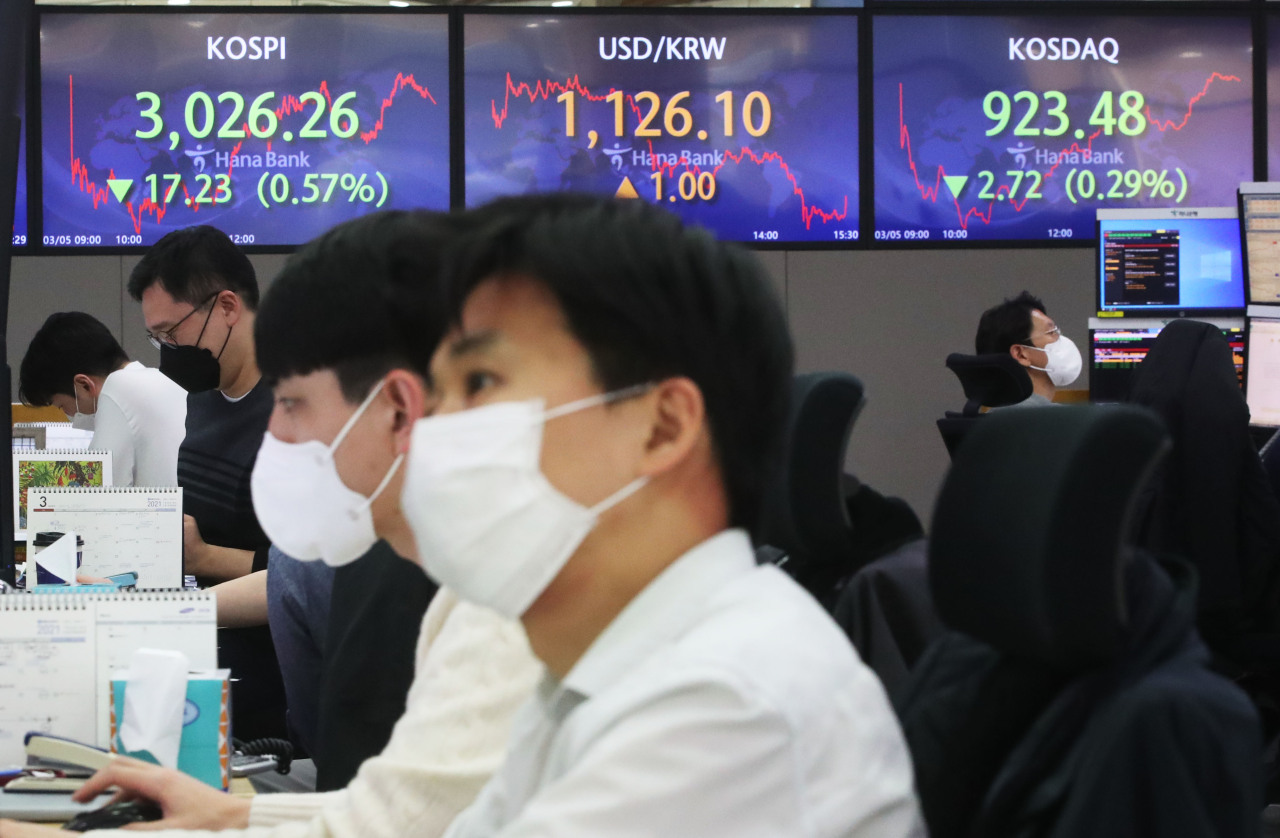 |
Foreign currency dealers are seen in a dealing room of Hana Bank headquarters in Seoul Friday. (Yonhap) |
South Korea‘s stock market narrowed down losses in the early morning session on Friday as retail trading has nearly offset lingering bond yield concerns in the United States.
The Korea Exchange’s main board Kospi shed 0.6 percent to close at 3,026.26 points, as Kospi was down 2 percent in early morning trade. The development board Kosdaq inched down 0.3 percent in closing, reducing from 2 percent in the morning.
Retail investors here continued to be active in trading. On Friday, local retail investors net bought over 1.3 trillion won ($1.2 billion) worth of listed stocks, while domestic and foreign institutional investors were net sellers.
Market giants were mixed. Tech giant Samsung Electronics retracted 0.4 percent, chip maker SK hynix tanked 1.4 percent, LG Chem surged 4.5 percent and internet firm Naver shrank 3.6 percent.
This comes as the bond yield spike at home and abroad is testing institutional investors‘ appetite for stocks, with Federal Reserve Chair Jerome Powell’s remark Thursday doing little to relieve stock investors‘ fears. A bond yield hike indicates that it has become cheaper and is to generate more attractive return.
Powell said during a Wall Street Journal conference that the surging yield “was something that was notable and caught my attention,” and fell short of signaling policy response to curb the spike.
The 10-year US Treasury yield jumped to 1.54 percent after Powell’s remark, up from 1.44 percent the previous Friday. By contrast, major US stocks retreated. the S&P 500 fell 1.3 percent in its third straight loss, the Dow Jones Industrial Average dropped 1.1 percent, and the Nasdaq composite slid 2.1 percent.
So too, the three-year South Korea‘s sovereign bond yield rose 4.5 percent to 1.066 percent this week, while the 10-year state bond yield soared 1.6 percent to 1.992 percent, according to data by the Korea Finanicial Investment Association.
Korea‘s bond yield upsurge is attributable to not only the US impact but also domestic issues revolving around the government’s 15-trillion-won supplementary budget for coronavirus relief, wrote Ahn So-eun, a strategist at IBK Securities.
“A yield hike is turning investors‘ attention away from equities into fixed income,” Ahn noted. “While stocks are becoming less appealing to investors, a stock market volatility is likely to follow depending on the change of bond yield.”
By Son Ji-hyoung (
consnow@heraldcorp.com)








![[Weekender] Korea's traditional sauce culture gains global recognition](http://res.heraldm.com/phpwas/restmb_idxmake.php?idx=644&simg=/content/image/2024/11/21/20241121050153_0.jpg)